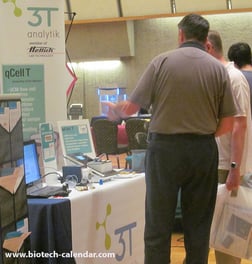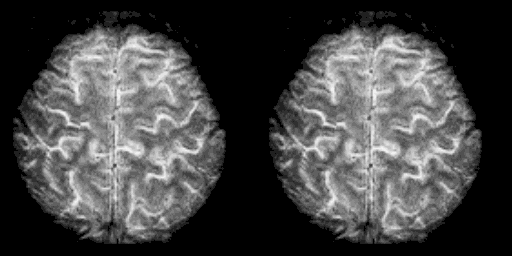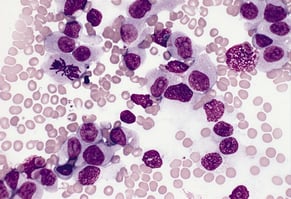Longwood Medical Area in Boston is one of the densest medical communities in the country. The 213-acre neighborhood houses four teaching hospitals, a medical school, and a diabetes research center and clinic. Five of those institutions — Boston Children’s Hospital, Brigham and Women’s Hospital, Beth Israel Deaconess Medical Center, Dana-Farber Cancer Institute, and Joslin Diabetes Center are affiliated with Harvard Medical School, which relies on them to train its students. In September 2017, Boston Children’s Hospital began construction of a $1 billion state-of-the-art clinical building.
Read MoreTags: Longwood Medical, Harvard University, cancer research, Massachusetts, Longwood Medical Center, Boston, MA, new medical buildings, laboratory suppliers, BioResearch Product Faire, laboratory products
Harvard Medical School, with facilities in the Longwood are aof Boston, is the third oldest medical school in the United States, founded in 1782, and is home to more than 700 students in the M.D. program, more than 140 in the D.M.D program, 556 in the Ph.D. program, and 155 in the M.D.‑Ph.D. program. Harvard Medical School is also affiliated with several teaching hospitals: the Beth Israel Deaconess Medical Center, the Brigham and Women’s Hospital and the Massachusetts General Hospital.
The Longwood Medical Area is known as one of the most prestigious educational, medical and research areas in the United States. Located along Longwood Avenue in Boston, Massachusetts, Longwood Medical Area (LMA) is made up of teaching hospitals, medical facilities, and non-medical facilities; as well as some top educational institutes, such as Harvard Medical School.
Tags: 2014, Harvard University, 2013, Northeast, Longwood Medical Center, Boston, BioResearch Product Faire Event, Research, MA, Harvard, NIH funding
 Tuberculosis (TB) is an infectious disease that affects nearly 1/3 of the world's population. Although eradication efforts have been undertaken, none have been successful and TB is still a leading cause around the world. Even though there are treatment methods for this infection, they are not always successful at killing the bacteria that cause TB. This provides life science researchers with more questions and research topics, to better understand the infection and bacteria and what causes treatments to work occasionally, but not always
Tuberculosis (TB) is an infectious disease that affects nearly 1/3 of the world's population. Although eradication efforts have been undertaken, none have been successful and TB is still a leading cause around the world. Even though there are treatment methods for this infection, they are not always successful at killing the bacteria that cause TB. This provides life science researchers with more questions and research topics, to better understand the infection and bacteria and what causes treatments to work occasionally, but not always
Tags: tuberculosis, University of Massachusetts Amherst, new research funding, MA, NIH funding, Amherst, UMASS, 2018, TB Research
Dr. Madelaine Bartlett, a biologist at the University of Massachusetts in Amherst, recently received a four-year $4 million grant from the National Science Foundation. The new research funding will allow Barlett and colleagues from UMass and other institutions to study the genes that regulate plant stem cell biology and their effect on fruit size and yield.
Read MoreTags: Stem cell research, University of Massachusetts Amherst, University of Massachusetts, agriculture, new research funding, Massachusetts, agricultural, MA, Northeast Region, UMASS, new research grant, NSF funding, NSF grant, NSF award, Plant Biology, agricultural business, agribusiness

(Image of brain by functional MRI via Wikimedia Commons)
Cognitive neurologist, Rosie Cowell of the University of Massachusetts, Amherst received a nearly $600,000 grant from the National Science Foundation. The funding will be used to develop and test her theory of how fine-grained visual perception interacts with the area of the brain critical to memory.
Read MoreTags: University of Massachusetts Amherst, University of Massachusetts, Bioresearch event, brain research, MA, research grant, Amherst, UMASS, Bioreseach, 2016, fMRI, Rosie Cowell
Bacteria research has become an increasingly important focus for researchers in the biomedical community as of late. From studying antibiotic resistant superbugs at UCSD to investigating bacterial diversity at Rutgers University, researchers are using these microscopic organisms to provide insight into diseases that plague our society.
Read MoreTags: University of Massachusetts Amherst, Massachusetts, MA, UMASS, Bacteria, Bacterial Cell Research
Cancer Research UK released a staggering statistic in 2014: 46% of people who have cancer are diagnosed during stages 3 or 4; these late stage diagnoses greatly reduce the chances of survival, as treatment success drops once cancer has progressed to such an advanced stage.
Read MoreTags: Harvard University, cancer research, Massachusetts, Boston, MA, Zebrafish
 Acute myeloid leukemia (AML) is the most common form of leukemia affecting the blood and bone marrow, and has been responsible for 1.8% of cancer deaths in 2016. Because it is so prevalent, many research teams around the world study this disease in search of new treatment methods. One of these research teams, from Harvard University, has joined up with the pharmaceutical company Merck in a $20 million collaboration to develop new therapeutics for leukemia.
Acute myeloid leukemia (AML) is the most common form of leukemia affecting the blood and bone marrow, and has been responsible for 1.8% of cancer deaths in 2016. Because it is so prevalent, many research teams around the world study this disease in search of new treatment methods. One of these research teams, from Harvard University, has joined up with the pharmaceutical company Merck in a $20 million collaboration to develop new therapeutics for leukemia.
Tags: Harvard University, Northeast, Leukemia, cancer research, Massachusetts, Boston, BioResearch Product Faire Event, MA, Harvard, longwood, 2016, cancer therapy, Merck
A multi-institute research team, including scientists from MassBiologics at the University of Massachusetts, may have found the key to successfully treating and vaccinating against one of this decade's most famously lethal diseases: Ebola.
Read MoreTags: University of Massachusetts Amherst, University of Massachusetts, Massachusetts, MA, UMASS, virus, 2016, ebola
 Researchers at University of Massachusetts, Amherst are reaping the rewards of breakthrough food science research, in the form of USDA grants totaling over $1.5 million.
Researchers at University of Massachusetts, Amherst are reaping the rewards of breakthrough food science research, in the form of USDA grants totaling over $1.5 million.
Tags: University of Massachusetts Amherst, Massachusetts, USDA, 2015, BioResearch Product Faire Event, Research Funding, MA, research grants, Amherst, UMASS

